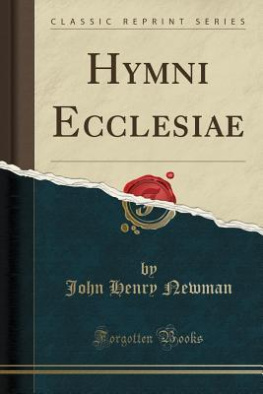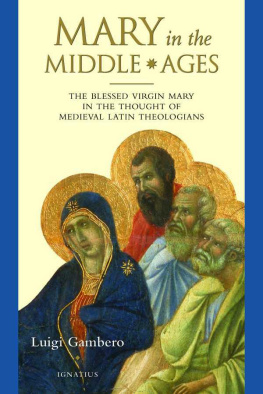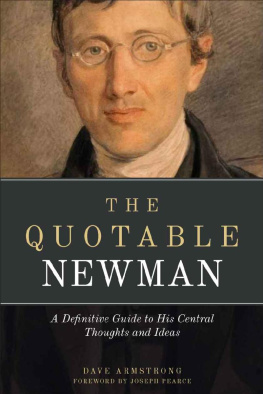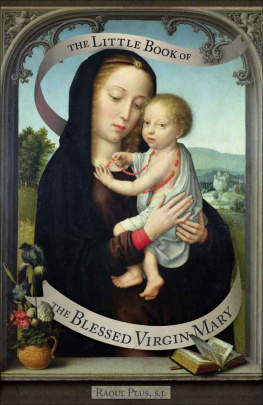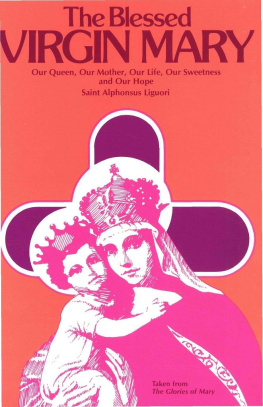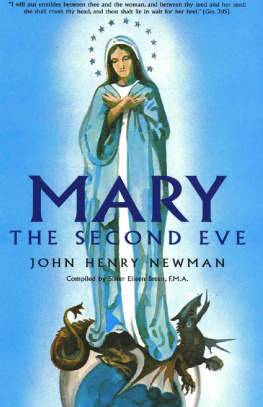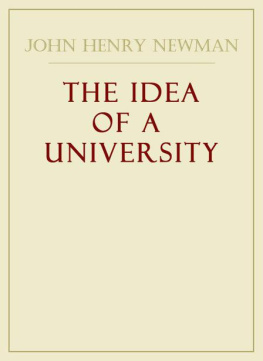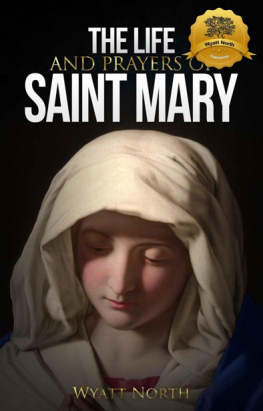John Henry Newman - A Letter Addressed to the Rev. E. B. Pusey, D.D., on Occasion of His Eirenicon
Here you can read online John Henry Newman - A Letter Addressed to the Rev. E. B. Pusey, D.D., on Occasion of His Eirenicon full text of the book (entire story) in english for free. Download pdf and epub, get meaning, cover and reviews about this ebook. genre: Religion. Description of the work, (preface) as well as reviews are available. Best literature library LitArk.com created for fans of good reading and offers a wide selection of genres:
Romance novel
Science fiction
Adventure
Detective
Science
History
Home and family
Prose
Art
Politics
Computer
Non-fiction
Religion
Business
Children
Humor
Choose a favorite category and find really read worthwhile books. Enjoy immersion in the world of imagination, feel the emotions of the characters or learn something new for yourself, make an fascinating discovery.
- Book:A Letter Addressed to the Rev. E. B. Pusey, D.D., on Occasion of His Eirenicon
- Author:
- Genre:
- Rating:5 / 5
- Favourites:Add to favourites
- Your mark:
- 100
- 1
- 2
- 3
- 4
- 5
A Letter Addressed to the Rev. E. B. Pusey, D.D., on Occasion of His Eirenicon: summary, description and annotation
We offer to read an annotation, description, summary or preface (depends on what the author of the book "A Letter Addressed to the Rev. E. B. Pusey, D.D., on Occasion of His Eirenicon" wrote himself). If you haven't found the necessary information about the book — write in the comments, we will try to find it.
John Henry Newman: author's other books
Who wrote A Letter Addressed to the Rev. E. B. Pusey, D.D., on Occasion of His Eirenicon? Find out the surname, the name of the author of the book and a list of all author's works by series.
A Letter Addressed to the Rev. E. B. Pusey, D.D., on Occasion of His Eirenicon — read online for free the complete book (whole text) full work
Below is the text of the book, divided by pages. System saving the place of the last page read, allows you to conveniently read the book "A Letter Addressed to the Rev. E. B. Pusey, D.D., on Occasion of His Eirenicon" online for free, without having to search again every time where you left off. Put a bookmark, and you can go to the page where you finished reading at any time.
Font size:
Interval:
Bookmark:
on Occasion of his Eirenicon
{1} N O one who desires the union of Christendom after its many and long-standing divisions, can have any other feeling than joy, my dear Pusey, at finding from your recent Volume, that you see your way to make definite proposals to us for effecting that great object, and are able to lay down the basis and conditions on which you could co-operate in advancing it. It is not necessary that we should concur in the details of your scheme, or in the principles which it involves, in order to welcome the important fact, that, with your personal knowledge of the Anglican body, and your experience of its composition and tendencies, you consider the time to be come when you and your friends may, without imprudence, turn your minds to the contemplation of such an enterprise. Even were you an individual member of that Church, a watchman upon a high tower in a metropolis of religious opinion, we should naturally listen with interest to what you had to report of the state of the sky and the progress of the {2} night, what stars were mounting up or what clouds gathering,what were the prospects of the three great parties which Anglicanism contains within it, and what was just now the action upon them respectively of the politics and science of the time. You do not go into these matters; but the step you have taken is evidently the measure and the issue of the view which you have formed of them all.
However, you are not a mere individual; from early youth you have devoted yourself to the Established Church, and, after between forty and fifty years of unremitting labour in its service, your roots and your branches stretch out through every portion of its large territory. You, more than any one else alive, have been the present and untiring agent by whom a great work has been effected in it; and, far more than is usual, you have received in your lifetime, as well as merited, the confidence of your brethren. You cannot speak merely for yourself; your antecedents, your existing influence, are a pledge to us, that what you may determine will be the determination of a multitude. Numbers, too, for whom you cannot properly be said to speak, will be moved by your authority or your arguments; and, numbers, again, who are of a school more recent than your own, and who are only not your followers because they have outstripped you in their free speeches and demonstrative acts in our behalf, will, for the occasion, accept you as their spokesman. There is no one anywhere,among ourselves, in your own body, or, I suppose, in the Greek Church,who can affect so large a circle of men, so virtuous, so able, {3} so learned, so zealous, as come, more or less, under your influence; and I cannot pay them a greater compliment than to tell them they ought all to be Catholics, nor do them a more affectionate service than to pray that they may one day become such. Nor can I address myself to an act more pleasing, as I trust, to the Divine Lord of the Church, or more loyal and dutiful to His Vicar on earth, than to attempt, however feebly, to promote so great a consummation.
I know the joy it would give those conscientious men, of whom I am speaking, to be one with ourselves. I know how their hearts spring up with a spontaneous transport at the very thought of union; and what yearning is theirs after that great privilege, which they have not, communion with the see of Peter, and its present, past, and future. I conjecture it by what I used to feel myself, while yet in the Anglican Church. I recollect well what an outcast I seemed to myself, when I took down from the shelves of my library the volumes of St. Athanasius or St. Basil, and set myself to study them; and how, on the contrary, when at length I was brought into Catholic communion, I kissed them with delight, with a feeling that in them I had more than all that I had lost; and, as though I were directly addressing the glorious saints, who bequeathed them to the Church, how I said to the inanimate pages, "You are now mine, and I am now yours, beyond any mistake." Such, I conceive, would be the joy of the persons I speak of, if they could wake up one morning, and find themselves rightfully possessed of Catholic traditions and hopes, without violence to their own {4} sense of duty; and, certainly, I am the last man to say that such violence is in any case lawful, that the claims of conscience are not paramount, or that any one may overleap what he deliberately holds to be God's command, in order to make his path easier for him or his heart lighter.
I am the last man to quarrel with them for this jealous deference to the voice of their conscience, whatever be the judgment that others may form of them in consequence, for this reason, because their present circumstances have once, as you know, been my own. You recollect well what hard things were said against us twenty-five years ago, which we knew in our hearts we did not deserve. Accordingly, I am now in the position of the fugitive Queen in the well-known passage; who, "non ignara mali" herself, had learned to sympathize with those who were the inheritors of her past wanderings. There were Priests, good men, whose zeal outstripped their knowledge, and who in consequence spoke confidently, when it would have been wiser in them to have suspended their adverse judgment of those whom, in no long time, they had to welcome as brethren in communion. We at that time were in worse plight than your friends are now, for our opponents put their very hardest thoughts of us into print. One of them wrote thus in a Letter addressed to one of the Catholic Bishops:
"That this Oxford crisis is a real progress to Catholicism, I have all along considered a perfect delusion ... I look upon Mr. Newman, Dr. Pusey, and their associates, as wily and crafty, though unskilful guides ... The embrace of Mr. Newman is the kiss {5} that would betray us ... But,what is the most striking feature in the rancorous malignity of these men,their calumnies are often lavished upon us, when we should be led to think that the subject-matter of their treatises closed every avenue against their vituperation. The three last volumes [of the Tracts] have opened my eyes to the craftiness and the cunning, as well as the malice, of the members of the Oxford Convention ... If the Puseyites are to be the new Apostles of Great Britain, my hopes for my country are lowering and gloomy ... I would never have consented to enter the lists against this strange confraternity ... if I did not feel that my own Prelate was opposed to the guile and treachery of these men ... I impeach Dr. Pusey and his friends of a deadly hatred of our religion ... What, my lord, would the Holy See think of the works of these Puseyites? "
Another priest, himself a convert, wrote:
"As we approach towards Catholicity, our love and respect increases, and our violence dies away; but the bulk of these men become more rabid as they become like Rome,a plain proof of their designs ... I do not believe that they are any nearer the portals of the Catholic Church than the most prejudiced Methodist and Evangelical preacher ... Such, Rev. Sir, is an outline of my views on the Oxford movement."
I do not say that such a view of us was unnatural; and, for myself, I readily confess, that I had at one time used about the Church such language, that I had no claim on Catholics for any mercy. But, after all, and in fact, they were wrong in their anticipations,nor did their {6} brother Catholics agree with them at the time. Especially Dr. Wiseman (Co-adjutor Bishop as he was then) took a larger and more generous view of us, nor did the Holy See interfere against us, though the writer of one of these passages invoked its judgment. The event showed that the more cautious line of conduct was the more prudent; and one of the Bishops, who had taken part against us, with a supererogation of charity, sent me on his deathbed an expression of his sorrow for having in past years mistrusted me. A faulty conscience, faithfully obeyed, through God's mercy, had in the long-run brought me right.
Font size:
Interval:
Bookmark:
Similar books «A Letter Addressed to the Rev. E. B. Pusey, D.D., on Occasion of His Eirenicon»
Look at similar books to A Letter Addressed to the Rev. E. B. Pusey, D.D., on Occasion of His Eirenicon. We have selected literature similar in name and meaning in the hope of providing readers with more options to find new, interesting, not yet read works.
Discussion, reviews of the book A Letter Addressed to the Rev. E. B. Pusey, D.D., on Occasion of His Eirenicon and just readers' own opinions. Leave your comments, write what you think about the work, its meaning or the main characters. Specify what exactly you liked and what you didn't like, and why you think so.

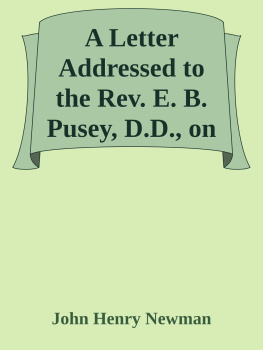
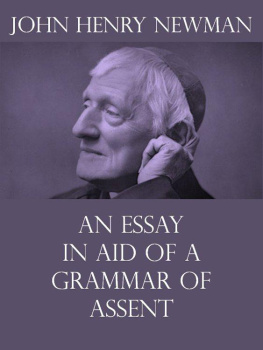
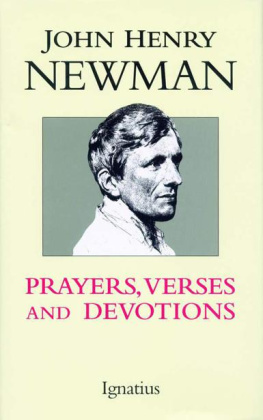
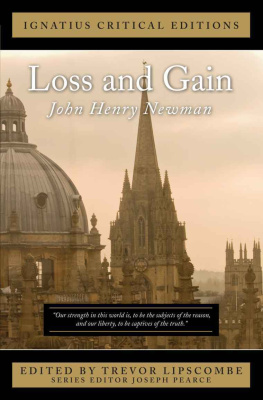
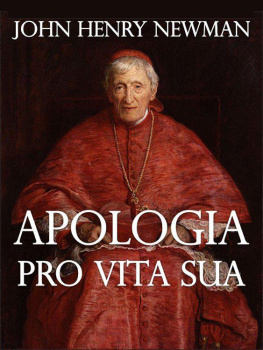
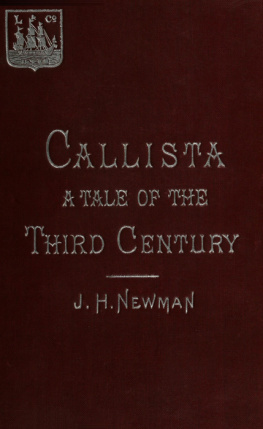
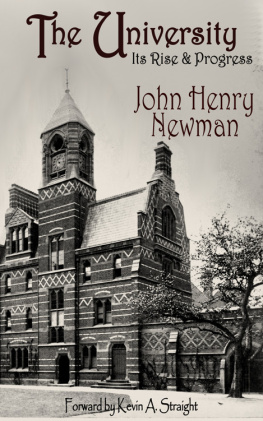
![Blessed John Henry Newman - Blessed John Henry Newman Collection [26 Books]](/uploads/posts/book/371011/thumbs/blessed-john-henry-newman-blessed-john-henry.jpg)

